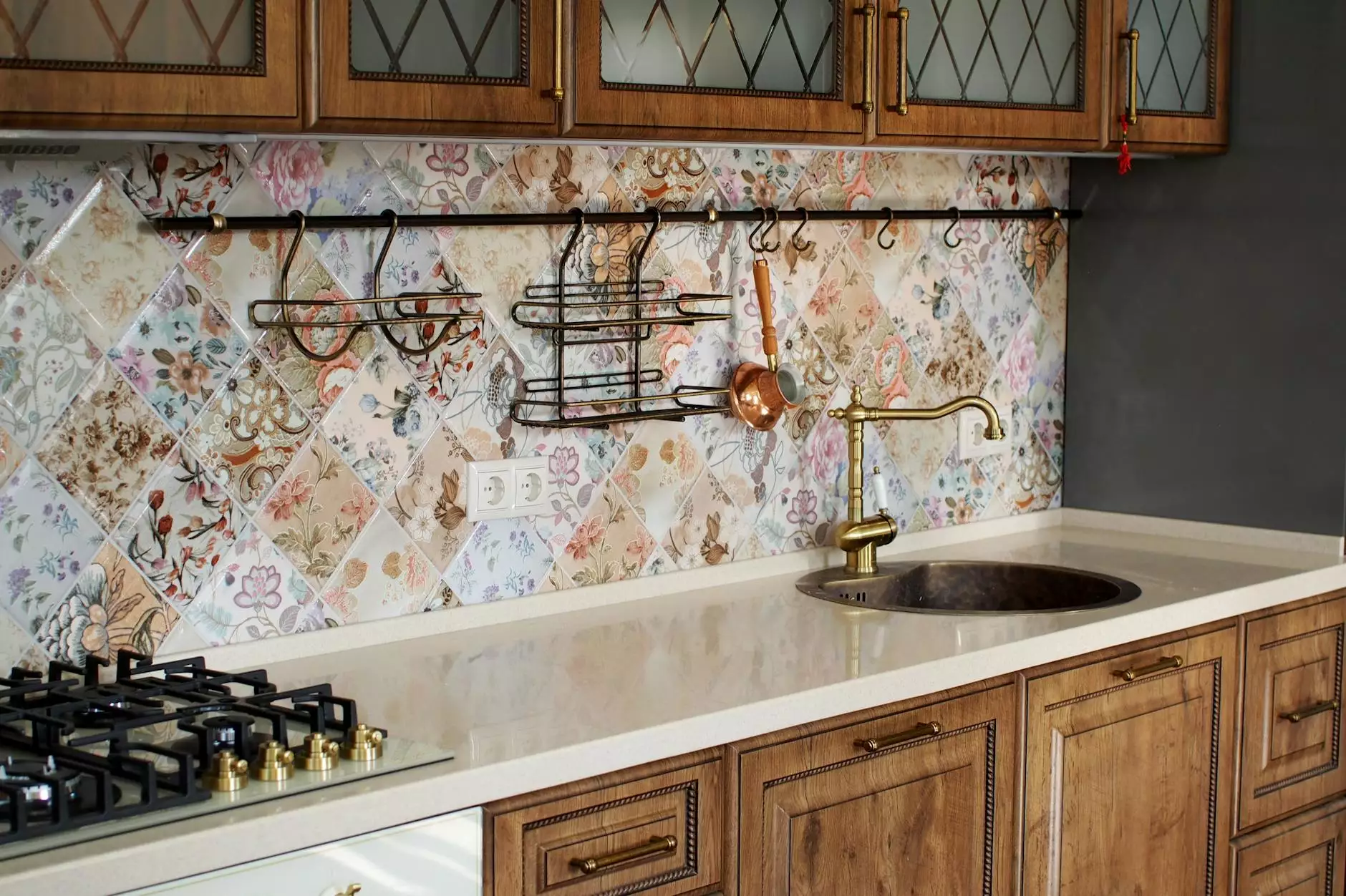The Cost of Changing Kitchen Worktops: A Comprehensive Guide

The cost of changing kitchen worktops is a crucial consideration when planning a home renovation. Whether you're renovating your entire kitchen or simply refreshing the work surfaces, knowing your options and what influences pricing can help you make informed decisions. In this article, we will delve into the various aspects that determine the cost, types of materials available, and the benefits of investing in new worktops for your kitchen makeover.
Understanding the Basics of Kitchen Worktop Costs
When contemplating a kitchen renovation, many homeowners primarily focus on aesthetic appeal. However, it’s essential to recognize that the cost of changing kitchen worktops is contingent on multiple factors, including material choice, installation complexity, and overall kitchen dimensions. Let's explore these factors in detail.
Factors Influencing Worktop Costs
- Material Type: The choice of material will significantly impact the overall price. Common materials include:
- Laminate: Cost-effective and versatile, laminate is one of the cheapest options available, with prices ranging from £20 to £50 per square meter.
- Granite: A popular choice for its durability and natural beauty, granite worktops can cost between £100 and £300 per square meter.
- Quartz: Engineered stone, often resembling marble or granite, usually ranges from £90 to £200 per square meter.
- Wood: Beautiful and warm, wooden worktops typically cost between £50 and £150 per square meter, depending on the wood type.
- Solid Surface: Durable and customizable, solid surface materials can cost anywhere from £200 to £500 per square meter.
- Size of the Kitchen: Larger kitchens will naturally incur higher costs as more material is required. Worktop pricing often reflects the linear meterage of the surface.
- Installation Complexity: If your design includes special features like curves, cut-outs for sinks, or integrated appliances, this can increase installation costs.
- Location of the Installation: Depending on where you live, costs may vary. Urban areas often have higher labor rates compared to rural regions.
Detailed Breakdown of Worktop Material Costs
Understanding the cost associated with each type of material is essential for budgeting purposes. Below, we provide an in-depth look at popular worktop materials and their unique benefits and drawbacks.
Laminate Worktops
Laminate worktops are an excellent budget option. They come in a wide range of colors and finishes, mimicking the look of more expensive materials at a fraction of the cost. The average cost for installation typically falls between £300 and £600 for a standard kitchen. Although laminate is susceptible to scratches and heat, it can be easily replaced if damaged.
Granite Worktops
Granite is a natural stone that offers unmatched durability and charm, making it a coveted choice for homeowners looking to elevate their kitchen’s aesthetic. With a price range of £100 to £300 per square meter, the cost reflects both the material quality and the intricate installation process. Granite requires periodic sealing to maintain its luster, but its longevity often justifies the initial investment.
Quartz Worktops
Engineered quartz has grown in popularity due to its non-porous nature and vast color palette. Its cost usually ranges from £90 to £200 per square meter. Unlike granite, quartz doesn’t require sealing, making it virtually maintenance-free. It can mimic the appearance of natural stones, making it a favorable option for modern kitchens.
Wood Worktops
Wooden worktops provide a rustic charm that can transform a kitchen. Costs range between £50 and £150 per square meter, depending on the wood species and finish. Regular maintenance, such as oiling and sealing, is necessary to keep wood looking pristine. However, when cared for, wood can last for many years, providing a warm, inviting space.
Solid Surface Worktops
Solid surface materials, such as Corian, allow for seamless designs and customized shapes. Their price typically falls between £200 and £500 per square meter. While they can be scratched, minor damages can be sanded out easily, preserving their attractive appearance longer compared to other materials.
Additional Costs and Considerations
Beyond the basic price of worktop materials, there are additional costs to consider when changing your kitchen surfaces:
Installation Costs
Professional installation can add anywhere from £200 to £1,000 to your total cost, depending on the complexity of your kitchen design. Always hire qualified installers who have experience with your chosen materials to ensure high-quality finishes.
Removal of Existing Worktops
If you currently have worktops installed, consider the cost of removal. This service often costs between £100 to £300, depending on the difficulty of the removal process and disposal of the old materials.
Edging and Finishing Touches
Some materials may require edging or additional finishing touches, like backsplashes, which can add £50 to £200 to your final bill. Investing in quality finishes can enhance the overall look of your kitchen.
Benefits of Changing Kitchen Worktops
While the cost of changing kitchen worktops can seem daunting, the benefits far outweigh the expenses. Here are several reasons to consider upgrading your kitchen surfaces:
- Aesthetic Appeal: New worktops can dramatically improve your kitchen’s overall look and feel, creating a modern and inviting space.
- Increased Home Value: Upgrading your kitchen can increase your home’s resale value. Homes with modern kitchens tend to attract buyers more readily.
- Enhanced Usability: Depending on your lifestyle, new materials can provide better functionality. For instance, non-porous surfaces are easier to clean and maintain.
- Sustainability: Many modern materials are eco-friendly, and choosing sustainable options can provide peace of mind.
Planning Your Kitchen Makeover
Transforming your kitchen into your dream space begins with a solid plan. Here are some steps to guide you through the kitchen renovation process:
Set a Budget
Understanding the overall cost of changing kitchen worktops and sticking to a budget will help in managing your renovation effectively. Include materials, installation, and unexpected expenses in your calculations.
Choose Your Materials Wisely
Carefully consider your lifestyle and design preferences when selecting worktop materials. For example, if you have children or enjoy cooking, you may want materials that can withstand heavy use.
Plan Your Layout
Work with a designer to create an efficient layout that maximizes space and flow in your kitchen. Ensure the worktops integrate seamlessly with your cabinetry and appliances.
Seek Professional Guidance
Consulting with kitchen design professionals can provide insights into trending designs and functional innovations that you may not have considered. Their expertise can lead to a more successful kitchen renovation.
Conclusion
In conclusion, understanding the cost of changing kitchen worktops is essential for any homeowner looking to renovate their kitchen. By considering factors such as material type, kitchen size, and installation complexity, you can make informed decisions that enhance the beauty and functionality of your space.
Refurbishing your kitchen with new worktops not only elevates aesthetic appeal but also increases property value. With a clear budget, careful planning, and professional assistance, you can transform your kitchen into a stunning hub of your home. Remember, investing in quality materials and proper installation will yield lasting satisfaction for years to come.
For more ideas and inspiration for your kitchen renewal project, visit kitchenmakeovers.co.uk and discover how you can achieve the kitchen of your dreams.









